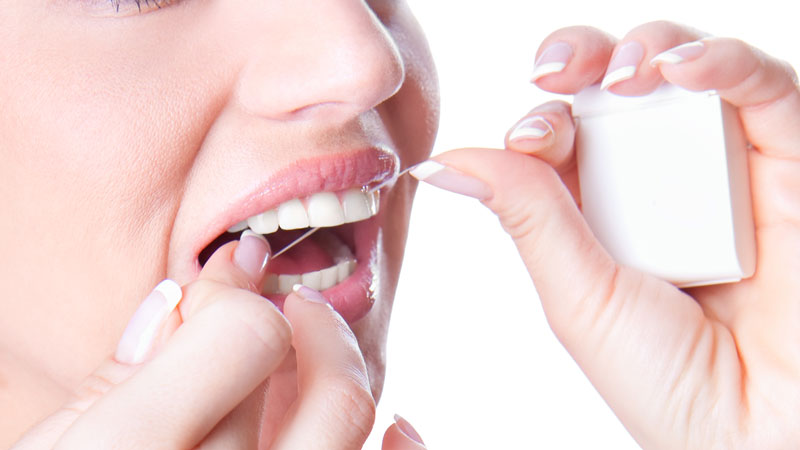
Recently, several news reports have attempted to discredit the effectiveness of flossing by claiming that there is no evidence of its effectiveness, the evidence is unreliable, and that it may, in fact, be dangerous. Everybody seems to be weighing-in on the notion of not flossing. I don’t know about you, but, after I floss, my mouth actually feels cleaner. In fact, there is a certain amount of relief that I feel after pulling out a stubborn piece of meat that has been stuck between my teeth since lunch or dinner. It’s kind of silly to think that a tiny piece of meat or food between teeth can cause stress, but that small piece that was stuck between your teeth is actually pushing your teeth apart and causing pressure on your gums, and that pressure translates to stress signals being sent to the brain, ultimately, increasing stress levels. The pressure is not as punishing as a toothache, but it is essentially the same concept.
The fact is that flossing helps with a lot more than reducing stress and getting small pieces of food out from between your teeth. Its primary purpose is to help scrape away the plaque and tarter that has built up between your teeth. The Centers for Disease Control and Prevention reported that when “germs stay on your teeth for too long, layers of plaque (film) and tartar (hardened plaque) develop. This buildup leads to early gum disease, called gingivitis” (cdc.gov, 2015). In fact, one in seven adults (35 to 44 years old) has or will develop gum disease. Unfortunately, the chances of getting gingivitis increase as we age, and although brushing your teeth can get the majority of that stuff out, flossing goes a little deeper between teeth.
When you have gingivitis, your gums weaken and begin to pull away from your teeth. This process creates gaps between your teeth and gums, which allows room for infection from a build-up of plaque and tarter. The term for this is “periodontitis,” which basically means that you have severe gum disease. Next, the bone and tissue that hold your teeth in place begin to deteriorate, and that’s when your gums become red, swollen, and start bleeding. Then it becomes painful to chew and, lastly, your teeth become sensitive and start falling out. Smoking triples the chances of all of these symptoms occurring.
Obviously, I am a huge supporter of utilizing dental floss to maintain good oral hygiene, and with all of the negative attention about flossing that has been in the news recently, I have to admit, it is actually a good thing. The reason is because now researchers, specialists, and orthodontic professionals are forced to look deeper into the consequences of not flossing rather than relying on outdated research. I am almost certain that what they find will not be pretty. With modern technology, the consequences of not flossing shouldn’t be hard to determine, but I’m sure skeptics will require further study on actual people. The difficulty with this type of research is that it is not easy to find people willing to put their health at risk for the sake of research and fact hunting. Nonetheless, in the end, I’m sure many of those reporters will not mind flossing after eating crow.
Flossing, on the hand, does require a bit of patience and care so that you don’t harm your gums. Of course, doing anything without care can cause you harm, even brushing your teeth, so we highly recommend flossing carefully and with enough slack to protect your gums and teeth. At Foothill Dental Care, we are more than willing to show you the proper flossing technique to keep your gums and teeth safe. If it has been over a year since you last saw an orthodontist, then it is recommended that you make an appointment for a checkup. Call (925) 961-5484 now to schedule an appointment at Foothill Dental Care in Livermore.
Don’t forget to brush twice a day, brush your tongue, and floss at least once.
